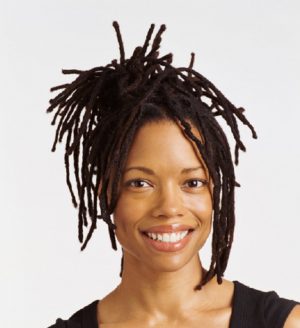Why So Much Fuss Over Black Employees' Hair?
Discrimination law still spends a lot more time on hair than you might think.
 Occasionally while doing this post I get a severe case of writer’s block – that is, I am stumped for something to write about. This always upsets me because I have repeatedly written that employment law is endlessly fascinating since it sits on the fault lines of society. It is society writ small.
Occasionally while doing this post I get a severe case of writer’s block – that is, I am stumped for something to write about. This always upsets me because I have repeatedly written that employment law is endlessly fascinating since it sits on the fault lines of society. It is society writ small.
I felt like that this week and blamed it on the heat, that it’s the last week before Labor Day, and that the Mets are more than 15 games out of first.
Be that as it may, as usual (Thank God!), something came along that got me out of my rut.

Legal AI: 3 Steps Law Firms Should Take Now
I just read a great piece in the New York Times entitled “Why Are Black People Still Punished for Their Hair?” by Ría Tabacco Mar, which had as a sub-heading: “Only black people are shamed when they choose to wear hairstyles consistent with their natural hair texture.”
I immediately thought back to my earlier ATL post “5 Incredible Things About Hair In The Workplace,” which had as its subheading “Discrimination law spends a lot more time on hair than you might think.”
In my prior post I started with my usual mantra: “The workplace tends to be society’s battlefield — where culture wars play out, where emerging trends go up against long-established ones, where seemingly intractable national problems become reduced to one employee versus one employer, and where icons topple as others appear as if by magic.”
And, of course, “Not for nothing have I always said that the workplace sits on society’s many fault lines.”
Sponsored

Navigating Financial Success by Avoiding Common Pitfalls and Maximizing Firm Performance

Early Adopters Of Legal AI Gaining Competitive Edge In Marketplace

Legal AI: 3 Steps Law Firms Should Take Now

Early Adopters Of Legal AI Gaining Competitive Edge In Marketplace
I wrote then about grooming issues involving religious beliefs, and of my waist-length hair when I was in college, and tied it all together with “For all intents and purposes, in an at-will state, if you let your freak flag fly at work you can be fired. Or not hired. Nothing says that an employer cannot have an ‘appearance’ policy for grooming. Except… when the civil rights laws are implicated. You know: Title VII, the Americans With Disabilities Act (“ADA”), etc.”
“You’ll Never Look Really Professional With Your Hair In Dreadlocks”
Anyway, along comes Ms. Mar’s article in which she hits front and center an issue I merely touched on previously — why Black peoples’ natural hair is cause for punishment. It started in law school with her, she said, when a classmate said to her as she prepared to go to an interview, “you’ll never look really professional with your hair in dreadlocks.”
She then described watching a video of a Black student in Louisiana crying because her box braided hair apparently “violated a dress code prohibition against ‘unnatural’ hair styles” and she was made to leave school. As Ms. Mar said, “the braids included hair extensions. Extensions are sometimes used in black hairstyles, like braids, that don’t require the use of damaging chemical straighteners.”
6-Year Old With Dreadlocks Barred From School
Sponsored

Is The Future Of Law Distributed? Lessons From The Tech Adoption Curve

The Business Case For AI At Your Law Firm

She noted that “Far too often, black students are humiliated, shamed or banned from school because of bias against natural black hair. Just one week earlier, a 6-year-old black boy in Florida was barred from school because of his locs, also known as dreadlocks.”
She then turned to a case which I discussed in my prior post, one example –- “perhaps the most controversial” one — of hair in the workplace setting some people off.
What’s The Prob With Curllocks?
In that 2013 case, the EEOC sued on behalf of a Black job applicant, Chastity Jones, who had blond hair dreaded in neat curls, or “curllocks,” in violation of company appearance policy. It was alleged that this constituted racial discrimination against Black employees based on physical and/or cultural characteristics unique to them.
As noted by the NAACP Legal Defense Fund, which filed an amicus brief in the case, the company used “a facially neutral grooming policy to give effect to its preference for hairstyles that suit white hair texture better than Black hair texture.”
The EEOC claimed that “there are racial distinctions in the natural texture of black and non-black hair. The EEOC will not tolerate employment discrimination against African-American employees because they choose to wear and display the natural texture of their hair, manage and style their hair in a manner amenable to it, or manage and style their hair in a manner differently from non-blacks.”
Very interesting argument, and it seemed like it had traction.
But no; as Ms. Mar noted, a federal appeals court rejected the claim.
“The court reasoned that discrimination based on race is forbidden because, it said, race is immutable, while hairstyles can be changed. It’s true that hairstyles involve some degree of personal choice, but that doesn’t give employers free rein to discriminate against workers who wear dreadlocks, a hairstyle said to be named by slave traders who viewed African hair as ‘dreadful.’”
Race indeed is immutable and hair styles indeed can be changed. But as Ms. Mar pointed out, “When it comes to hair, only black people and multiracial people of African descent are punished when they choose to wear styles consistent with their natural hair texture. It’s unthinkable that a court would uphold a policy that effectively required white workers to alter their hair texture through costly, time-consuming procedures involving harsh chemicals.”
Point well taken.
Closer To Sheep Wool?
I mentioned in my earlier post that an earlier New York Times article noted that “America has always had trouble with black hair,” and that “[t]he bias against black hair is as old as America itself.”
The article referred to the 18th century when “British colonists classified African hair as closer to sheep wool than human hair.”
Ms. Mar said that “I was luckier than Chastity Jones; I got the internship. But I never forgot the hurtful comment. … It’s frustrating that schools, employers and federal courts continue to judge us based not on what we can contribute but on who we are and how we wear our hair.”
 Richard B. Cohen has litigated and arbitrated complex business and employment disputes for almost 40 years, and is a partner in the NYC office of the national “cloud” law firm FisherBroyles. He is the creator and author of his firm’s Employment Discrimination blog, and received an award from the American Bar Association for his blog posts. You can reach him at Richard.Cohen@fisherbroyles.com and follow him on Twitter at @richard09535496.
Richard B. Cohen has litigated and arbitrated complex business and employment disputes for almost 40 years, and is a partner in the NYC office of the national “cloud” law firm FisherBroyles. He is the creator and author of his firm’s Employment Discrimination blog, and received an award from the American Bar Association for his blog posts. You can reach him at Richard.Cohen@fisherbroyles.com and follow him on Twitter at @richard09535496.







